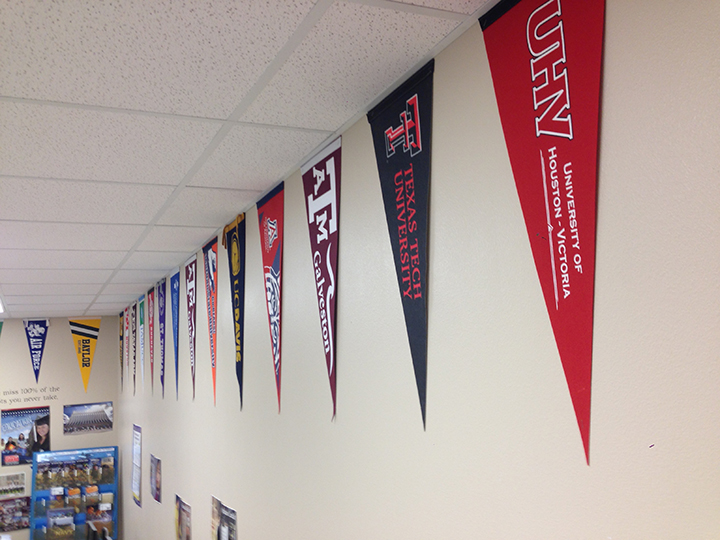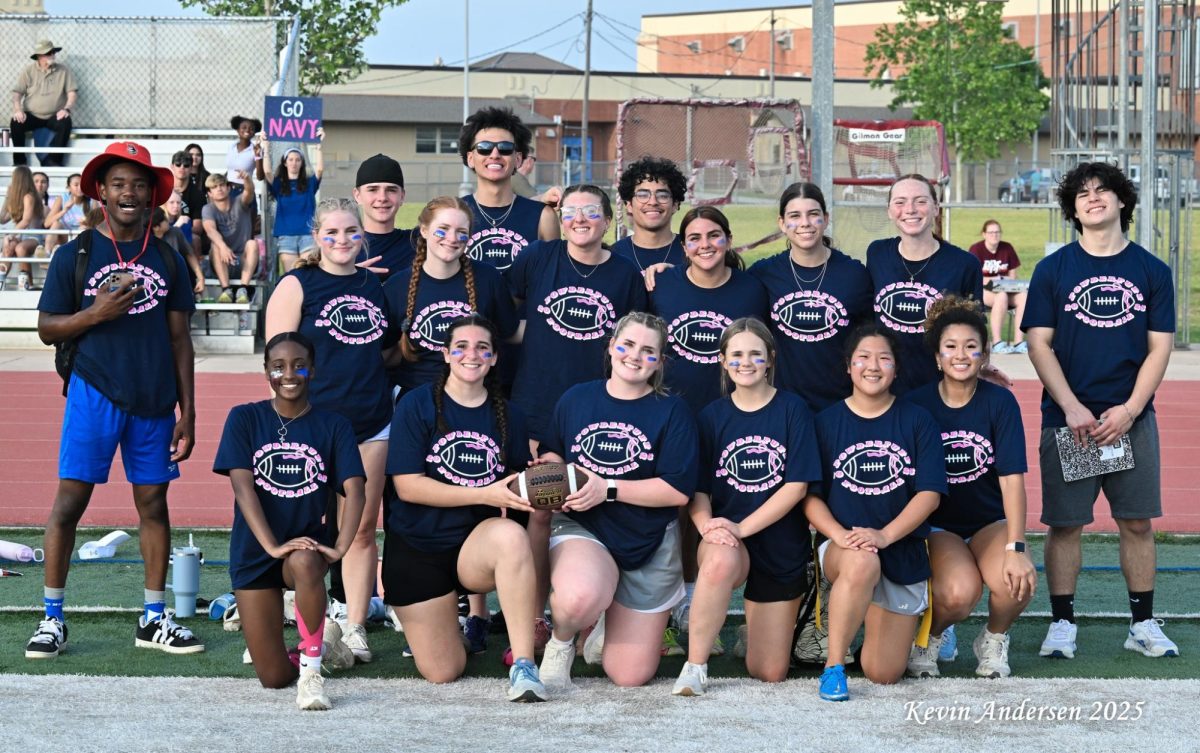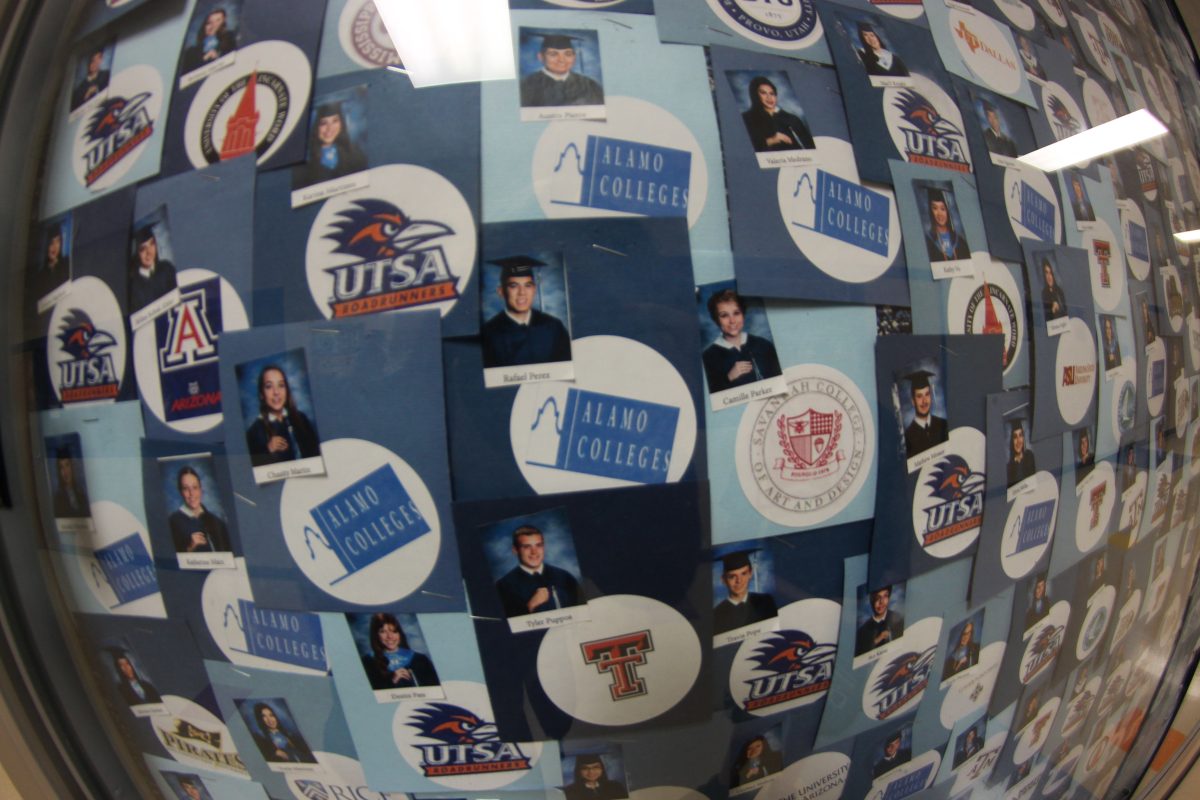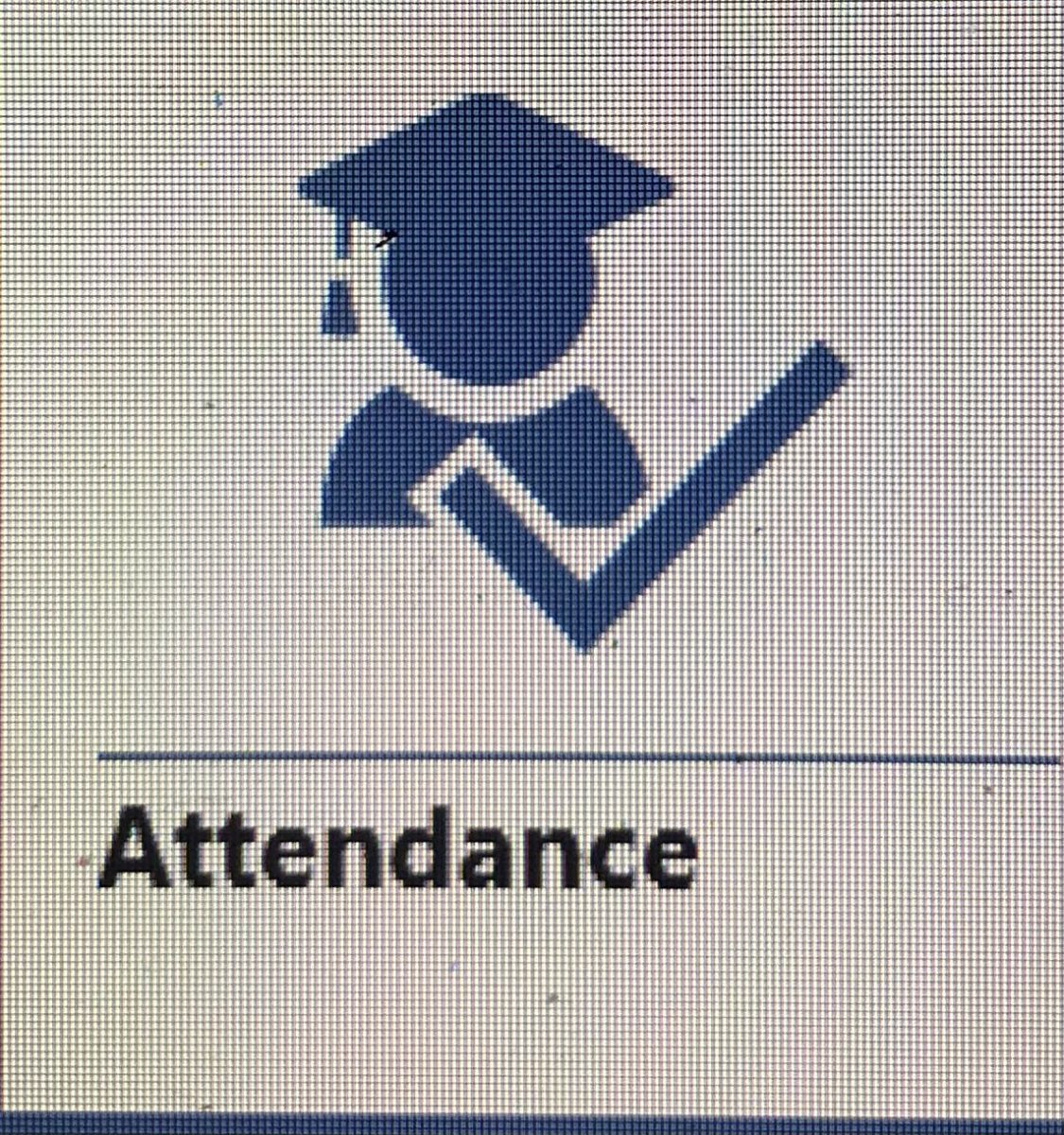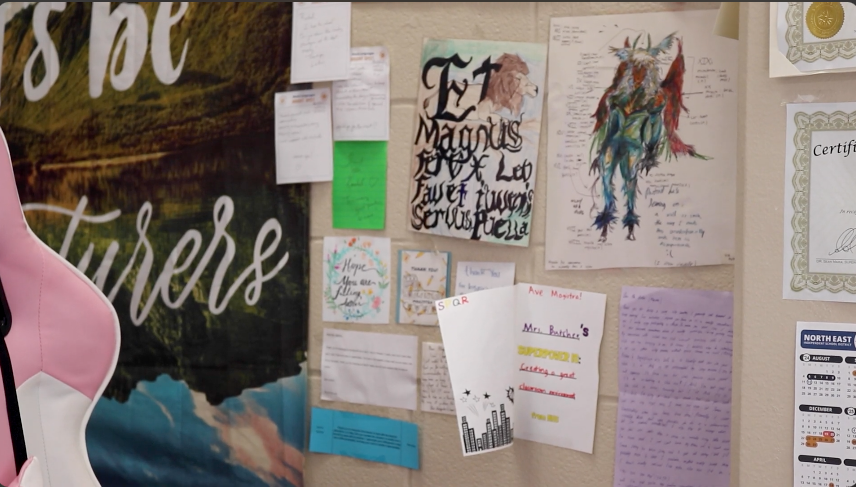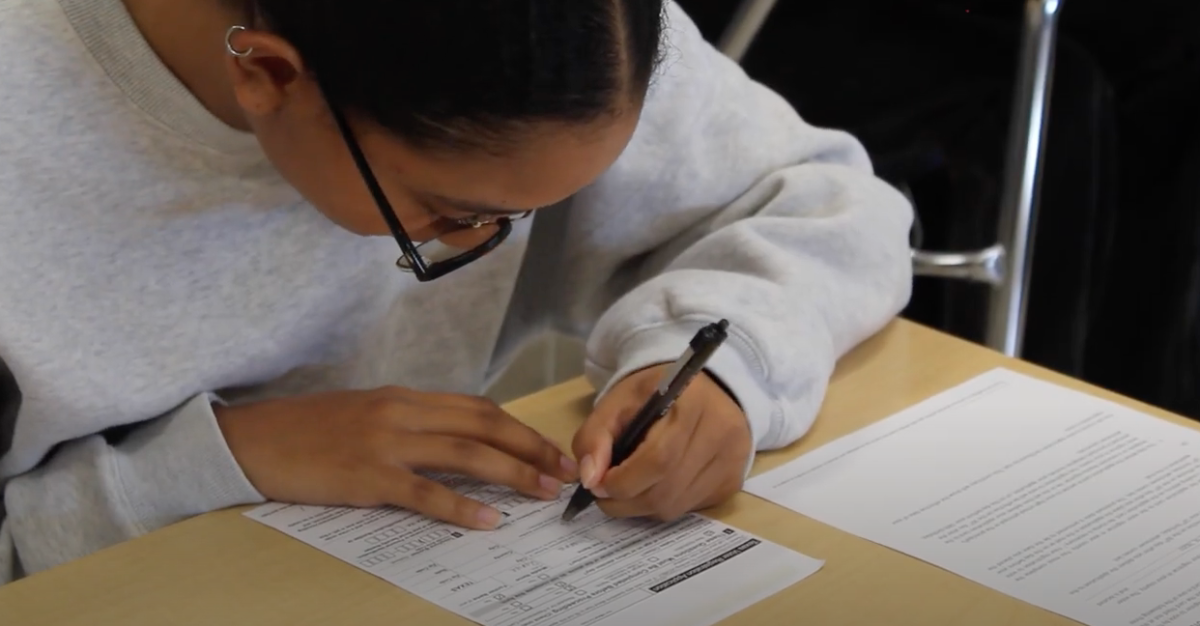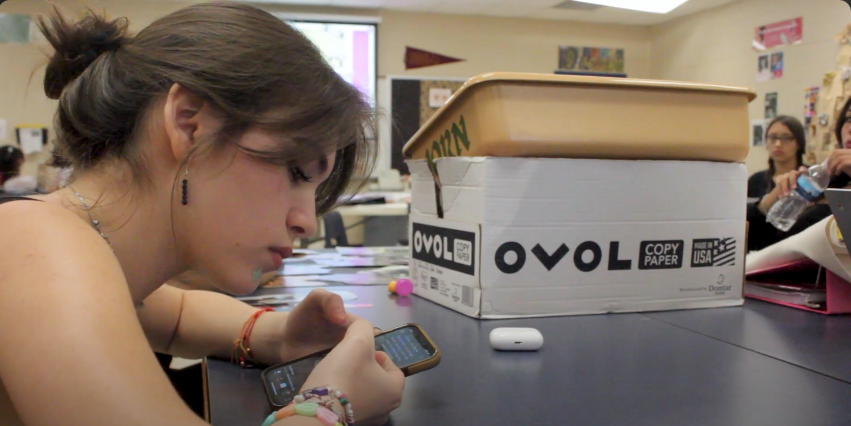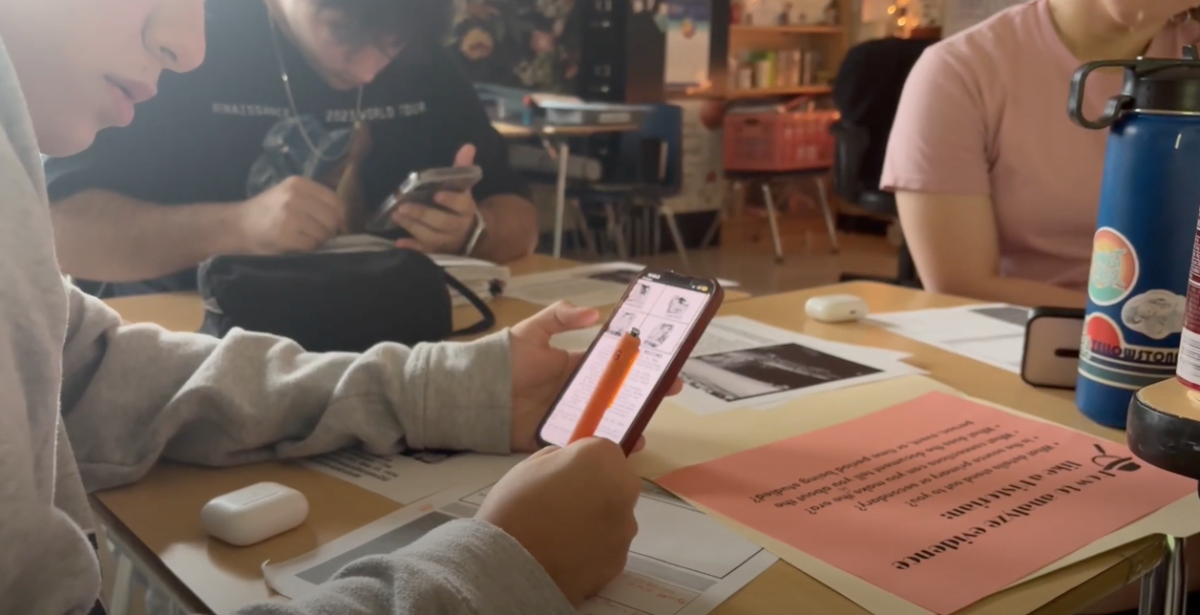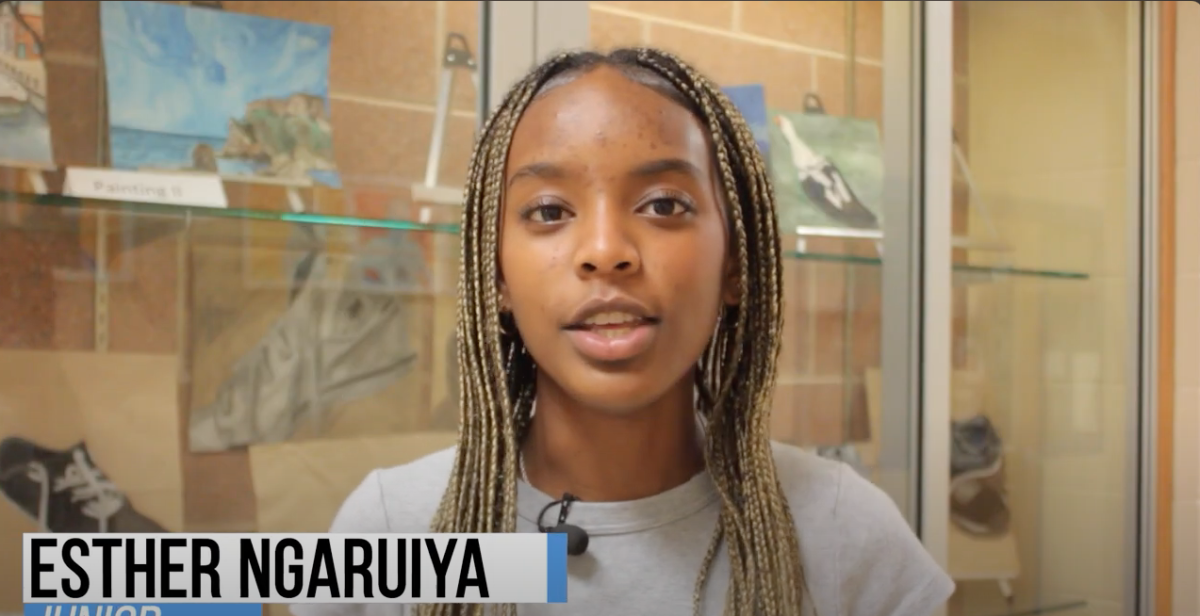by Emma Fitzhugh | news editor
Another day of school goes by; still no call. ‘It’s still early though,’ he tells himself. ‘I still have until October.’ Wasn’t it just a few weeks ago that he submitted the application? After all, how many other applicants could there be? As he stands there thinking about the vagueness of his future, senior Justin Checchin thinks back to his application- the grades he made, the organizations he was involved in, volunteer hours, and more, all listed on that one paper. But for now it seems as though waiting is his only option.
“I’m in the process-it’s almost done. Well, first you have to fill out this whole application [explaining] why you’re doing this, and then they give you an appointment and see if that appointment is valid or not, because they can only give out so many nominations,” Checchin said.
It is right around this time of year that primarily seniors, but occasionally some juniors, begin to more seriously consider their options when it comes to college and/or life after high school. Whether it’s finding a school that most appropriately aligns with their academic needs, negating the pro’s and con’s of in state versus out of state tuition, or simply trying to figure out what they want to study, the college application process is one that many students face, but there is something that can be added to a college resume that may benefit students.
“My letter of recommendation was to the Air Force Academy. I had to apply to get the letter from Ted Cruz (full name: Rafael Edward “Ted” Cruz), the Senator of Texas,” Checchin said.
After he graduates from high school, Checchin plans on furthering his education in this program rather than college, but the application processes seem to be similar.
“You just have to go to their [Senator] website and they set you up with meetings with their own secretaries and stuff, and then they give you the congressional nomination. I’m not sure when my appointment is yet; they’ll get back to me like in October, late October, I think,” Checchin said.
However, the Air Force Academy does not seem to have as many applicants compared to other colleges and universities, according to Checchin, but there are other requirements in addition to the recommendation letter from your local state Senator.
“Yes, you do actually need a letter of recommendation for the Air Force Academy, and I still need to do that; from an English and Math teacher. I would want to, for the math I would want to get Ms. Arechiga, and then for my English I would want to get, probably Mr. Cannon,” Checchin said.
Understanding the possibility that he might not get accepted into this program, as well as respecting a teacher’s right to decline a student’s request for a college recommendation letter, Checchin seems to have created a back-up plan just in case.
“Yeah, I am officially applied to UT and SMU. So I mean I might not even get into those, but it’s still a fallback to the Air Force Academy,” Checchin said. “Ms. Stokes was talking to us about it, and she showed us how to format all of our recommendations so it’s all real…respectful to the teacher who’s actually giving you the recommendation. She said that some teachers could say no because they’re doing this on their own time, it’s not like they’re required to do it,” Checchin said.
Senior Morgan Gardner seems to agree with Checchin, explaining how she feels teachers should seriously evaluate a student before agreeing to write the recommendation letter.

“I think they [teachers] have the right to say no because I mean if the student is a really bad kid, I mean, I think that’s just helping them more [by not writing the letter] because they would probably write them a bad letter of recommendation,” Gardner said.
Similar to Checchin, Gardner is also in the process of submitting her letters of recommendation in order to be considered for the college of her choosing, which for her includes, among other universities, Texas A&M and Texas Tech.
“I applied for a letter of recommendation to a college, yes. I asked Mr. Felux and Mr. Snelson. [I chose those teachers] because I’ve known them for a very long time, like I’ve known Snelson, and he’s my coach, so I figured it would be good to get the coaching aspect, and I manage for him this year, so he sees how I organize stuff and so I figured that would be helpful. And then Mr. Felux because I had him sophomore year, and I mean I really liked his class and I did really well. And then I went to Europe with him over the summer, so just like seeing me out of the classroom setting, that would help also,” Gardner said.
In order to provide sufficient time to complete their letters, Gardner explains how she tried to give her teachers as much time as possible before her submission deadline.
“Yeah, I asked them like at the beginning of the year. I told them, well actually I haven’t gotten them [letters] yet because my deadline is in a few weeks, so I [guess] I have the teachers on that deadline. I just asked the teachers directly, because I knew they wouldn’t mind,” Gardner said.
Overall, these letters of recommendation help to provide an outside evaluator, such as a Dean of Admissions, the chance to see a student from an outside perspective, according to Gardner, which should actually help an applicant.
“I think they’re [letters] important because you’re sending off those college applications to someone that doesn’t know you so I mean it’s good to have references. They see not only the academic side but the extracurriculars that I’m involved in and everything, and how I do in those electives,” Gardner said.
However, some people believe that the importance of these letters depends on the university, and what specifically they are looking for in their incoming freshman class.
“If the college mostly relies on scores, or if they’re a college that’s kinda scrambling to fill a freshman class, then maybe the recommendation isn’t all that big a deal. But for a lot of the top colleges, having a good letter of recommendation is very important,” Chemistry teacher W. Patrick Cunningham said.
Cunningham is one of several teachers that is willing to write letters of recommendation for his students, who went on to explain why he feels as though taking the time to write a personal recommendation is something he owes his students.
“I think that’s one thing that I owe the students, as clients of this school and this district. You know we’re in the business of helping them to prepare for the future, and that’s one way

we can do that,” Cunningham said.
But Cunningham does have his own requirements if a student would like a letter of recommendation from him.
“I do tell them that before I can write a letter of recommendation, I need to know to whom and where and so forth, and a lot of it’s common application stuff so I just have to do it once, but I tell them I need a sample of work that you did for me that you’re proud of. It’s usually lab work, lab reports,” Cunningham said.
However, for those students that are able to, in most cases, resurrect something that they’re proud of, Cunningham does put some thought into the letters he writes.
“Oh, I would say I get anywhere between 10 and 20 requests a year. I put a lot of thought into it, especially if I can write one letter for several colleges, and just hold onto it for the future. It’s not that big a deal,” Cunningham said.
But not everyone seems to agree with this reasoning, including English IV AP/DC teacher Megan Stokes, who explained her opinion on the importance behind the entire college recommendation process.
“I think that there’s a lot of different factors that go into writing a letter of recommendation on the teacher side of it. And a teacher has the right to say no for a myriad of different reasons. Each letter of recommendation takes 20 to 30 minutes, and if a teacher is just too busy, we have the right to say no, because it’s outside of our contract ours; it’s not in our contract to do it and we do it out of the kindness of our hearts. So if it is gonna take, if you don’t have that time, then you can say no,” Stokes said.
In addition, Stokes explains how she attempts to educate her students on the proper way to go about asking a teacher for a recommendation letter, resources they can use, and why these letters are so imperative.
“They [students] should have letters of recommendation. It should be from a teacher that you have a strong rapport with, or that you’re going into that field of study, those I think are more important than subject aligned. They also need to check their college or university on ApplyTexas, that’s a good web source, or Texans for College is another good web source, see if their college or universities require them. If it says optional, I strongly recommend that the students do it, and only not do it if the university specifically says that they don’t accept them,” Stokes said.
Stokes went on to say how this time of year seems to be when she gets the most requests, which could be another reason why teachers may not be able to write a letter of recommendation for every student.
“Typically the end of September to January is the busy time for letters of recommendation. Personally yes, I get a lot of requests. Mostly junior and senior teachers typically get the majority of the letter requests, and typically it’s in core classes, so math, English, science and social studies. Junior and senior teachers get inundated with requests. And that’s another reason why teachers may say no, because I get 20 to 30 kids asking me a year, and that’s 30 minutes per letter of rec per kid; it takes up a good chunk of time,” Stokes said.
There are also recommendation letters written at the college level, and there seem to be both similarities and differences between the college and high school experience, according to Stokes.
“I think they’re similar in that a letter of recommendation is asking a professional to judge a student that they have worked with on their professional skills in that area, in that way they are similar. However in college you have limited time with your professors, and the time that you do spend with them is more specialized in that area of study. So their letters of recommendation are going to look different than a high school teachers, because we typically see the whole student as a well-rounded individual, and not just in our subject area. Whereas in college, it would be more toward just that field because again, it’s toward a job, which is just in that field,” Stokes said.
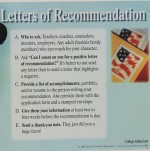
However, in the event that a student is unable to get a letter of recommendation from their requested teacher, the College and Career Center, located in the counselor’s office, is an available resource where students can obtain more information about the college application process and/or fill out a request form to receive a recommendation letter from a counselor.
“Absolutely, counselors can write letters of recommendation. They can start just with their teachers, and I know some teachers even have something similar to what we have in the counseling office, our questionnaire. But here in the counseling office we have a letter of recommendation request form located in our College and Career Center,” head counselor Mrs. Courtney Tarbox said. “This form is required because it give us permission to send the letter to where the student requests, but more importantly, the questionnaire portion gives students the opportunity to share more personal information with us to ensure that their counselor can write a comprehensive letter beyond their grades and scores. The form also reminds students that it is helpful for them to provide a resume, and they need to allow at least 2 weeks for recommendation letters to be written.”
Regardless of who writes it, these letters are generally very important for colleges and/or universities to see, according to Tarbox, so students should try and include at least one recommendation letter with their college application and resume.
“Colleges really value letters of recommendation because often times part of their application they see the numbers. So in other words they see students GPA or rank, they can see what classes they’ve taken by looking at their transcript, and they can even somewhat see the rigor of courses and those things, but what a letter of recommendation does; it helps elaborate and give them a better idea of a true picture of what the student, more the organizations and the volunteer work and the things that they do, but also it helps them to know that student more and what value they can bring to their school or their program,” Tarbox said. “So I know when we talked with colleges and admissions officers, they say that letter of recommendation is really important because it gives more depth to their understanding of who that student is, and why they’d be a valuable student for that university or college or program.”

And sometimes, just taking the time to send out the letters can make all the difference, according to Tarbox.
“That’s one of the most rewarding things as a counselor, yeah absolutely, when you’ve met and you’ve worked with a student, and you’ve talked with them and you’ve helped them realize what their goals are and what path they want to pursue. And then when they need that letter of recommendation I always take the time to sit down and talk with the student, get to know them a little better, and then it’s so awesome when they send out their applications and they get word back that they got accepted to the school they wanted. So I love that follow up,” Tarbox said.
For students interested in learning more about the college application process click here.


